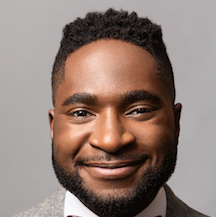 A new study led by researchers at the University of California, Los Angeles finds that in states with bans on affirmative action programs, the proportion of students from underrepresented racial and ethnic minority groups in public medical schools in the United States fell by more than one-third by five years after those bans went into effect.
A new study led by researchers at the University of California, Los Angeles finds that in states with bans on affirmative action programs, the proportion of students from underrepresented racial and ethnic minority groups in public medical schools in the United States fell by more than one-third by five years after those bans went into effect.
“We know that a more diverse physician workforce leads to better care for racial- and ethnic-minority patients,” said Dan Ly, the study’s lead author and an assistant professor of medicine in the division of general internal medicine and health services research at the David Geffen School of Medicine at UCLA. “But we have made such poor progress in diversifying our physician workforce. Our research shows that bans on affirmative action, like the one California passed in 1996, have had a devastating impact on the diversity of our medical student body and physician pipeline.”
The researchers examined enrollment data from 1985 through 2019 for 53 medical schools at public universities, focusing on students from underrepresented racial and ethnic groups. The authors studied medical schools at public universities, not private ones, because states’ bans on affirmative action applied to public postsecondary institutions.
Of the medical schools, 32 were in 24 states without affirmative action bans. And 21 were in eight states that banned affirmative action during that period — Arizona, California, Florida, Michigan, Nebraska, Oklahoma, Texas, and Washington. In the year before the bans were implemented, underrepresented students made up an average of 14.8 percent of the total enrollment of those states’ public medical schools. By five years later, the research found, enrollment of underrepresented students at those schools had fallen by 37 percent.

The full study, “Affirmative Action Bans and Enrollment of Students From Underrepresented Racial and Ethnic Groups in U.S. Public Medical Schools,” was published in the Annals of Internal Medicine. It may be accessed here.

